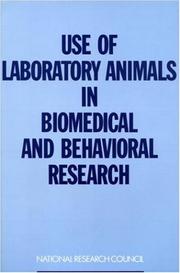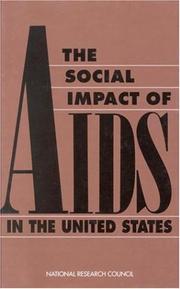| Listing 1 - 10 of 21 | << page >> |
Sort by
|
Book
ISBN: 0128238070 9780128238073 9780128238066 0128238062 Year: 2021 Publisher: London : Academic Press,
Abstract | Keywords | Export | Availability | Bookmark
 Loading...
Loading...Choose an application
- Reference Manager
- EndNote
- RefWorks (Direct export to RefWorks)
"Big Data permeates all aspects of modern life, and while there is no shortage of potential benefits resulting from this, author Henrik Skaug Sætra argues that we must also understand the threats Big Data poses to liberty. The issues discussed in Big Data’s Threat to Liberty: Surveillance, Nudging, and the Curation of Information are related to how we are constantly under surveillance."--
Big data --- Social aspects. --- Data sets, Large --- Large data sets --- Data sets --- Artificial intelligence --- Social control. --- Liberty. --- Big Data --- Social Control, Formal --- Social Control, Informal --- Freedom --- Big Data. --- Social Control, Formal. --- Social Control, Informal. --- Freedom.
Book
ISBN: 1280581514 9786613611291 0123850126 0123850118 9780123850119 9780123850126 9781280581519 Year: 2012 Publisher: London : Elsevier,
Abstract | Keywords | Export | Availability | Bookmark
 Loading...
Loading...Choose an application
- Reference Manager
- EndNote
- RefWorks (Direct export to RefWorks)
People experiencing disorders in regulation are highly sensitive to stimulation from the environment, emotionally reactive, and have difficulty maintaining an organized and calm life style. They are impulsive, easily frustrated, and as a result make decisions that lead to an overwrought state-or who conversely retreat entirely from the world. This disorder is most likely to accompany diagnoses of bipolar or mood disorder, anxiety, depression, obsessive-compulsive disorder, Asperger’s syndrome, eating or sleep disorders, and/or attention deficit disorder. This book instructs therapists how best to treat the dysregulated adult, providing diagnostic checklists, and a chapter by chapter inventory in approaching treatment of dysregulation in a variety of life skills.
Identity (Psychology). --- Mental Disorders - therapy. --- Mental illness - Treatment. --- Self -- Social aspects. --- Self-control. --- Social Control, Informal. --- Social interaction. --- Mental illness --- Psychiatry and Psychology --- Sociology --- Social Sciences --- Anthropology, Education, Sociology and Social Phenomena --- Mental Disorders --- Social Control, Informal --- Psychiatry --- Health & Biological Sciences --- Psychiatric Disorders, Individual --- Psychotherapy --- Treatment --- Treatment. --- Adult. --- Sensory stimulation. --- Emotional Regulation. --- Emotion Regulation --- Emotion Self-Regulation --- Emotional Self-Regulation --- Emotion Self Regulation --- Emotion Self-Regulations --- Emotional Regulations --- Emotional Self Regulation --- Emotional Self-Regulations --- Regulation, Emotion --- Regulation, Emotional --- Regulations, Emotional --- Self-Regulation, Emotion --- Self-Regulation, Emotional --- Self-Regulations, Emotion --- Self-Regulations, Emotional --- Perception --- Senses and sensation --- Sensory deprivation --- Adults

ISBN: 0387299858 1441940111 9786611115906 1281115908 0387299866 Year: 2008 Publisher: New York : Springer,
Abstract | Keywords | Export | Availability | Bookmark
 Loading...
Loading...Choose an application
- Reference Manager
- EndNote
- RefWorks (Direct export to RefWorks)
Emotions: basic products of human functioning, intimately involved in physical health, they have been alternately embraced and ignored by generations of researchers and practitioners. Emotion Regulation offers a much-needed corrective to the conventional clinical wisdom, updating the knowledge base on emotions—specifically their expression and inhibition—as they affect stress, health, and well-being. An international team of researchers from a variety of fields sort out conflicting affect/health theories, and provide the latest findings on inter- and intrapersonal functions of emotions while acknowledging the role of individual variables. The book covers conceptual, developmental, and clinical issues and balances core topics with emerging areas of interest, including: Non-expression of emotion in the affective disorders, and innovative approaches to treatment. Five types of alexithymia, and their relationships to health problems. Aggression as maladaptive coping. Emotional suppression in eating disorders. Children’s somatic complaints: an emotional-competence perspective. Attachment perspectives on adult crying. Emotional intelligence: is it really intelligence, and can it really be assessed? Clinical applications of the writing disclosure paradigm. This wealth of insights makes Emotion Regulation a practice-enhancing work of particular interest to clinical and health psychologists, neuropsychologists, and psychiatrists working in medical settings. The book is comprehensive enough to be a useful postgraduate text for these and related fields. .
Computer programming. --- Emotions. --- Behavior --- Behavior and Behavior Mechanisms --- Learning --- Behavioral Disciplines and Activities --- Psychoanalytic Theory --- Therapeutics --- Social Control, Informal --- Psychiatry and Psychology --- Psychological Theory --- Sociology --- Analytical, Diagnostic and Therapeutic Techniques and Equipment --- Mental Processes --- Psychological Phenomena and Processes --- Social Sciences --- Anthropology, Education, Sociology and Social Phenomena --- Behavior Control --- Inhibition (Psychology) --- Emotions --- Psychology --- Feelings --- Human emotions --- Passions --- Psychology. --- Psychiatry. --- Clinical psychology. --- Health psychology. --- Neuropsychology. --- Health Psychology. --- Clinical Psychology. --- Affect (Psychology) --- Affective neuroscience --- Apathy --- Pathognomy --- Psychology, clinical. --- Medicine and psychology --- Mental health --- Psychology, Pathological --- Psychiatry --- Psychology, Applied --- Psychological tests --- Neurophysiology --- Psychophysiology --- Health psychology --- Health psychology, Clinical --- Psychology, Clinical health --- Psychology, Health --- Salutogenesis --- Clinical psychology
Book
ISBN: 9780199533848 0199533849 9780199686131 0199686130 0191740977 1280777206 0191612375 9786613687593 9780191740978 9780191612374 9781280777202 Year: 2012 Publisher: Oxford : Oxford University Press,
Abstract | Keywords | Export | Availability | Bookmark
 Loading...
Loading...Choose an application
- Reference Manager
- EndNote
- RefWorks (Direct export to RefWorks)
This title reconstructs the distinctive relationship between the house and masculinity in the 18th century; adds a missing piece to the history of the home, uncovering the hopes and fears men had for their homes and families.
Home --- Masculinity --- Authority --- Political science --- Authoritarianism --- Consensus (Social sciences) --- Masculinity (Psychology) --- Sex (Psychology) --- Men --- Families --- Marriage --- History --- History. --- Social aspects --- History of the United Kingdom and Ireland --- anno 1700-1799 --- Gender Identity. --- Family --- Social Dominance. --- Social Control, Informal. --- Households --- Gender identity --- Hommes --- Ménages (Statistique) --- Identité sexuelle --- history. --- Social life and customs --- Conduct of life --- Histoire --- Moeurs et coutumes --- Morale pratique --- Husbands --- Spouses --- Househusbands --- Married men --- Population --- Home economics --- Households. --- Conduct of life. --- Identity. --- Male identity --- Masculine identity --- Identity (Psychology) --- patriarchy --- masculinity --- household --- cultural history --- oeconomy --- britain --- eighteenth-century --- gender --- house --- middling sort --- England --- Family (biology) --- London
Book
ISBN: 9781493912360 1493912356 9781493912353 1493912364 Year: 2015 Publisher: New York, NY : Springer New York : Imprint: Springer,
Abstract | Keywords | Export | Availability | Bookmark
 Loading...
Loading...Choose an application
- Reference Manager
- EndNote
- RefWorks (Direct export to RefWorks)
How can people master their own thoughts, feelings, and actions? This question is central to the scientific study of self-regulation. The behavioral side of self-regulation has been extensively investigated over the last decades, but the biological machinery that allows people to self-regulate has mostly remained vague and unspecified. Handbook of Biobehavioral Approaches to Self-Regulation corrects this imbalance. Moving beyond traditional mind-body dualities, the various contributions in the book examine how self-regulation becomes established in cardiovascular, hormonal, and central nervous systems. Particular attention is given to the dynamic interplay between affect and cognition in self-regulation. The book also addresses the psychobiology of effort, the impact of depression on self-regulation, the development of self-regulation, and the question what causes self-regulation to succeed or fail. These novel perspectives provide readers with a new, biologically informed understanding of self-awareness and self-agency. Among the topics being covered are: Self-regulation in an evolutionary perspective. The muscle metaphor in self-regulation in the light of current theorizing on muscle physiology. From distraction to mindfulness: psychological and neural mechanisms of attention strategies in self-regulation. Self-regulation in social decision-making: a neurobiological perspective. Mental effort: brain and autonomic correlates in health and disease. A basic and applied model of the body-mind system. Handbook of Biobehavioral Approaches to Self-Regulation provides a wealth of theoretical insights into self-regulation, with great potential for future applications for improving self-regulation in everyday life settings, including education, work, health, and interpersonal relationships. The book highlights a host of exciting new ideas and directions and is sure to provoke a great deal of thought and discussion among researchers, practitioners, and graduate-level students in psychology, education, neuroscience, medicine, and behavioral economics.
Psychology. --- Personality and Social Psychology. --- Psychology Research. --- Developmental Psychology. --- Philosophy (General). --- Psychic research. --- Developmental psychology. --- Consciousness. --- Psychologie du développement --- Conscience --- Psychophysiology --- Self-control --- Self-management (Psychology) --- Neuropsychology --- Investigative Techniques --- Sociology --- Mind-Body Therapies --- Complementary Therapies --- Analytical, Diagnostic and Therapeutic Techniques and Equipment --- Social Sciences --- Therapeutics --- Anthropology, Education, Sociology and Social Phenomena --- Methods --- Social Control, Informal --- Sociology & Social History --- Social Change --- Biofeedback training --- Visceral learning --- Experiential research. --- Personality. --- Social psychology. --- Biological control systems --- Feedback (Psychology) --- Mind and body --- Operant conditioning --- Psychotherapy --- Development (Psychology) --- Developmental psychobiology --- Psychology --- Life cycle, Human --- Apperception --- Perception --- Philosophy --- Spirit --- Self --- Research --- Mass psychology --- Psychology, Social --- Human ecology --- Social groups --- Personal identity --- Personality psychology --- Personality theory --- Personality traits --- Personology --- Traits, Personality --- Individuality --- Persons --- Temperament

ISSN: 07246145 ISBN: 9783540713210 3540713212 3540713239 9786610863594 1280863595 Year: 2007 Volume: 107 Publisher: Berlin: Springer,
Abstract | Keywords | Export | Availability | Bookmark
 Loading...
Loading...Choose an application
- Reference Manager
- EndNote
- RefWorks (Direct export to RefWorks)
Plants, Genetically Modified --- Public Opinion --- Plant biotechnology --- Plant genetic engineering --- Plantes --- Génie génétique végétal --- Biotechnologie --- Transgenic plants. --- Plant genetic engineering. --- Moral and ethical aspects. --- Switzerland --- Social Control, Informal --- Plants --- Europe --- Organisms, Genetically Modified --- Organism Forms --- Geographic Locations --- Eukaryota --- Sociology --- Organisms --- Geographicals --- Social Sciences --- Anthropology, Education, Sociology and Social Phenomena --- Bioengineering --- Plant Sciences --- Agriculture --- Mechanical Engineering --- Earth & Environmental Sciences --- Engineering & Applied Sciences --- Plant biotechnology. --- Crop biotechnology --- Crops --- Genetic engineering --- Biotechnology --- Life sciences. --- Biotechnology. --- Agriculture. --- Plant biochemistry. --- Microbial genetics. --- Microbial genomics. --- Plant genetics. --- Life Sciences. --- Plant Genetics & Genomics. --- Microbial Genetics and Genomics. --- Plant Biochemistry. --- Genetics --- Genomics --- Microbial genetics --- Microorganisms --- Microbiology --- Phytochemistry --- Plant biochemistry --- Plant chemistry --- Biochemistry --- Botany --- Phytochemicals --- Plant biochemical genetics --- Farming --- Husbandry --- Industrial arts --- Life sciences --- Food supply --- Land use, Rural --- Chemical engineering --- Biosciences --- Sciences, Life --- Science --- Transgenic plants --- Agricultural biotechnology --- Biochemistry. --- Plant Genetics and Genomics. --- Biological chemistry --- Chemical composition of organisms --- Physiological chemistry --- Biology --- Chemistry --- Medical sciences --- Composition --- Plant genetic engineering - Moral and ethical aspects.

ISBN: 0803953984 1322417067 1452233454 0803953976 1506319548 1452263639 9781452263632 9781452233451 9780803953987 9780803953970 9781506319544 Year: 1995 Publisher: Thousand Oaks, Calif. Sage Publications
Abstract | Keywords | Export | Availability | Bookmark
 Loading...
Loading...Choose an application
- Reference Manager
- EndNote
- RefWorks (Direct export to RefWorks)
How do you design an effective message for a health campaign? This book explores this question from both practical and theoretical perspectives. The contributors demonstrate the necessity of basing message design decisions on appropriate theories of human behaviour and communication effectiveness.
659.2 --- #SBIB:309H1025 --- #SBIB:316.334.3M50 --- Information work. Advisory and consultancy services --- Mediaboodschappen met een informatieve functie --- Organisatie van de gezondheidszorg: algemeen, beleid --- Health promotion. --- Mass media in health education. --- Mass media in health education --- Health promotion --- Social Control, Informal --- Health Care Facilities, Manpower, and Services --- Information Science --- Preventive Health Services --- Behavior --- Attitude --- Delivery of Health Care --- Communications Media --- Behavior and Behavior Mechanisms --- Health Services --- Sociology --- Health Care --- Health Care Quality, Access, and Evaluation --- Psychiatry and Psychology --- Social Sciences --- Anthropology, Education, Sociology and Social Phenomena --- Health Promotion --- Attitude to Health --- Public Opinion --- Mass Media --- Communication --- Public Health --- Health & Biological Sciences --- Public Health - General --- 659.2 Information work. Advisory and consultancy services --- Health education --- Health promotion programs --- Health promotion services --- Promotion of health --- Wellness programs --- Preventive health services --- Sociology of health --- Mass communications --- volksgezondheid --- medische journalistiek --- preventieve gezondheidszorg --- gezondheidspromotie --- medische wetenschappen

ISBN: 0309039479 9786610214617 1280214619 0309594839 058502636X 9780585026367 0309039444 9780309039444 9780309039475 Year: 1989 Publisher: Washington, D.C. National Academy Press
Abstract | Keywords | Export | Availability | Bookmark
 Loading...
Loading...Choose an application
- Reference Manager
- EndNote
- RefWorks (Direct export to RefWorks)
Human genetics --- Professional ethics. Deontology --- MEDICAL --- Ethics --- Biology --- Bioethics --- Central Nervous System --- Embryonic Structures --- Probability --- Diseases --- Humanities --- Earth Sciences --- Health Services Accessibility --- Genetic Techniques --- Social Control, Informal --- Technology --- Art --- Social Behavior --- Genetics --- Tissue Transplantation --- Reproductive Techniques, Assisted --- Risk Management --- Social Control Policies --- Health Care Quality, Access, and Evaluation --- Genetic Processes --- Morals --- Genome --- Economics --- Health Planning --- Culture --- Natural Science Disciplines --- DNA --- Biological Science Disciplines --- Biochemistry --- Epidemiologic Measurements --- Philosophy --- Biological Processes --- Psychology, Social --- Investigative Techniques --- Health Care --- Genetic Phenomena --- Anthropology, Cultural --- Genetic Structures --- Policy --- Statistics as Topic --- Social Control, Formal --- Technology, Industry, and Agriculture --- Delivery of Health Care --- Nucleic Acids --- Mathematical Concepts --- Behavior --- Biological Phenomena --- Nervous System --- Public Health --- Anatomy --- Chemistry --- Transplantation --- Health Care Economics and Organizations --- Social Sciences --- Reproductive Techniques --- Disciplines and Occupations --- Behavior and Behavior Mechanisms --- Sociology --- Organization and Administration --- Anthropology --- Surgical Procedures, Operative --- Health Services Administration --- Health Care Evaluation Mechanisms --- Anthropology, Education, Sociology and Social Phenomena --- Phenomena and Processes --- Environment and Public Health --- Therapeutics --- Psychiatry and Psychology --- Analytical, Diagnostic and Therapeutic Techniques and Equipment --- Technology, Industry, Agriculture --- Nucleic Acids, Nucleotides, and Nucleosides --- Epidemiologic Methods --- Quality of Health Care --- Chemicals and Drugs --- Biological Evolution --- Public Policy --- Fetal Tissue Transplantation --- Molecular Biology --- Risk Assessment --- Ecology --- Public Opinion --- Resource Allocation --- Brain --- Research --- Biomedical Technology --- Chromosome Mapping --- Fertilization in Vitro --- Embryo, Mammalian --- Genome, Human --- Health Care Rationing --- Risk --- Social Values --- DNA, Recombinant --- Science --- Altruism --- Human Body --- Neoplasms --- Biomedical Research --- Fetus --- Health & Biological Sciences --- Biology - General --- Biology. --- Bioethics. --- Biomedical ethics --- Life sciences --- Life sciences ethics --- Moral and ethical aspects --- Biomass --- Life (Biology) --- Natural history

ISBN: 0309038391 9786610214938 1280214937 0309564220 0585144168 9780585144160 0309078784 9780309078788 9780309038393 Year: 1988 Publisher: Washington, D.C. National Academy Press
Abstract | Keywords | Export | Availability | Bookmark
 Loading...
Loading...Choose an application
- Reference Manager
- EndNote
- RefWorks (Direct export to RefWorks)
SCIENCE --- Experiments & Projects --- Animal experimentation --- Vivisection --- Laboratory animals --- Statistics as Topic --- Risk Assessment --- Animal Welfare --- Government --- History --- Risk --- Federal Government --- Research --- Social Control, Informal --- Animal Experimentation --- Animal Testing Alternatives --- Biomedical Research --- Research Personnel --- Public Policy --- Government Regulation --- Social Control, Formal --- Behavioral Research --- Animals, Laboratory --- Reference Standards --- Organizations --- Mathematics --- Animal Population Groups --- Occupational Groups --- Persons --- Probability --- Behavioral Sciences --- Epidemiologic Methods --- Weights and Measures --- Epidemiologic Measurements --- Health Care Economics and Organizations --- Sociology --- Animal Use Alternatives --- Science --- Investigative Techniques --- Social Control Policies --- Health Care Evaluation Mechanisms --- Social Sciences --- Humanities --- Risk Management --- Policy --- Public Health --- Named Groups --- Natural Science Disciplines --- Organization and Administration --- Anthropology, Education, Sociology and Social Phenomena --- Behavioral Disciplines and Activities --- Animals --- Mathematical Concepts --- Analytical, Diagnostic and Therapeutic Techniques and Equipment --- Health Care --- Quality of Health Care --- Disciplines and Occupations --- Environment and Public Health --- Psychiatry and Psychology --- Eukaryota --- Health Care Quality, Access, and Evaluation --- Health Services Administration --- Phenomena and Processes --- Organisms --- Zoology - General --- Zoology --- Health & Biological Sciences --- Animal experimentation. --- Vivisection. --- Laboratory animals. --- Animals, Experimental --- Animals in research --- Experimental animals --- Lab animals --- Anti-vivisection --- Experimentation on animals --- Zoopery --- Animal culture --- Laboratory organisms --- Working animals --- Animal welfare --- Biology, Experimental --- Medicine, Experimental

ISBN: 0309046289 9786610203451 1280203455 0309583861 0585024138 9780585024134 6610203458 9780309046282 Year: 1993 Publisher: Washington, D.C. National Academy Press
Abstract | Keywords | Export | Availability | Bookmark
 Loading...
Loading...Choose an application
- Reference Manager
- EndNote
- RefWorks (Direct export to RefWorks)
MEDICAL --- AIDS & HIV --- AIDS (Disease) --- Religion --- Confidentiality --- Contact Tracing --- Delivery of Health Care --- Government --- Sociology, Medical --- Public Health --- Health Personnel --- Patient Care --- Financial Support --- Homosexuality --- Social Control, Formal --- State Government --- Economics --- Family Relations --- Public Policy --- Social Change --- Acquired Immunodeficiency Syndrome --- AIDS Serodiagnosis --- Epidemiology --- HIV Seropositivity --- Federal Government --- Government Regulation --- Human Experimentation --- Local Government --- Pharmaceutical Preparations --- Coercion --- Duty to Warn --- Mandatory Programs --- Prisoners --- Infant, Newborn --- Social Problems --- Politics --- Social Welfare --- Child --- Jurisprudence --- Patient Advocacy --- Health Facilities --- Quarantine --- Health --- Occupational Groups --- Sexuality --- Age Groups --- HIV Infections --- Research --- Organizations --- Sociology --- Forensic Psychiatry --- Epidemiologic Methods --- Persons --- Therapeutics --- Social Control Policies --- Health Care Facilities, Manpower, and Services --- Socioeconomic Factors --- Serologic Tests --- Infant --- Organization and Administration --- Patient Care Management --- Humanities --- Investigative Techniques --- Family --- Truth Disclosure --- Infection Control --- Medicine --- Patient Rights --- Health Services --- Health Care Quality, Access, and Evaluation --- Environment and Public Health --- Biomedical Research --- Communicable Disease Control --- Health Care Economics and Organizations --- Chemicals and Drugs --- Health Occupations --- Social Control, Informal --- Slow Virus Diseases --- Social Sciences --- Population Characteristics --- Health Care --- Analytical, Diagnostic and Therapeutic Techniques and Equipment --- Health Services Administration --- Immunologic Tests --- Disciplines and Occupations --- Science --- Named Groups --- Sexually Transmitted Diseases, Viral --- Anthropology, Education, Sociology and Social Phenomena --- Human Rights --- Lentivirus Infections --- Psychiatry --- Immunologic Deficiency Syndromes --- Reproductive Physiological Phenomena --- Virus Diseases --- Disclosure --- Sexual Behavior --- Policy --- Public Health Practice --- Psychology, Social --- Behavioral Sciences --- Communication --- Diseases --- Immune System Diseases --- Behavior and Behavior Mechanisms --- Retroviridae Infections --- Sexually Transmitted Diseases --- Laboratory Techniques and Procedures --- Natural Science Disciplines --- Reproductive and Urinary Physiological Phenomena --- Behavior --- Immunologic Techniques --- Psychiatry and Psychology --- Diagnosis --- Phenomena and Processes --- RNA Virus Infections --- Behavioral Disciplines and Activities --- Communicable Diseases --- Health & Biological Sciences --- Social aspects --- #SBIB:316.334.3M20 --- #SBIB:316.334.3M50 --- #SBIB:35H436 --- #SBIB:35H6030 --- Sociale epidemiologie en etiologie: sociale aspecten van ziekte en gezondheid --- Organisatie van de gezondheidszorg: algemeen, beleid --- Beleidssectoren: welzijn, volksgezondheid en cultuur --- Bestuur en beleid: nationale en regionale studies: Verenigde Staten --- United States
| Listing 1 - 10 of 21 | << page >> |
Sort by
|

 Search
Search Feedback
Feedback About UniCat
About UniCat  Help
Help News
News